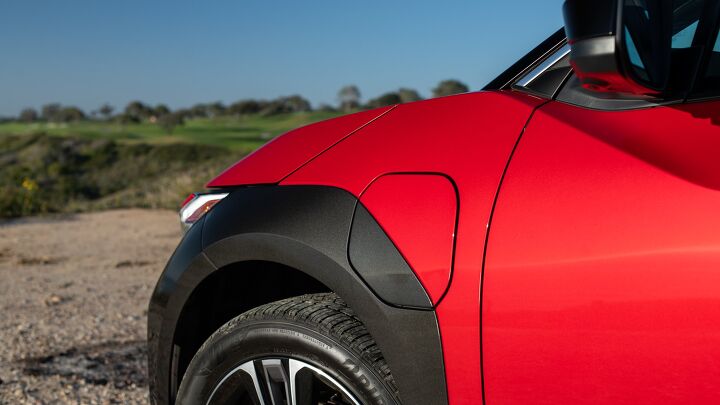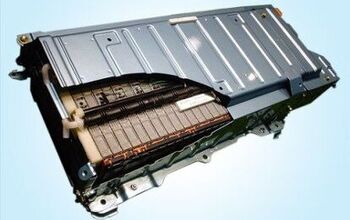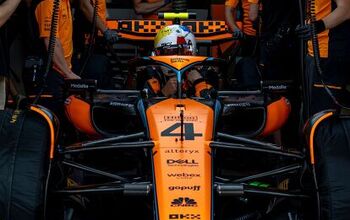Toyota's EV Battery Production Efforts are Looking Up

Toyota may be pushing hard toward more diverse propulsion options instead of solely focusing on EVs, but that doesn’t mean it’s not looking for ways to make headway on electrification. The Japanese auto giant recently announced its acquisition of Primearth EV Energy from Panasonic, which it said would give it a significant boost toward EV battery mass production.
The company already owned 60 percent of Primearth, starting with a 40 percent stake when it was founded in 1996, climbing to 60 percent in 2005. In 2010, Toyota grabbed another 20.5 percent, so this recent announcement only really covers 19.5 percent of Primearth. Some of the automaker’s other partially-owned companies already produce hybrid batteries, and some build PHEV and EV batteries.
Toyota has announced a next-generation battery that it said can deliver up to 500 miles of range. It’s expected to roll the first market-ready units in 2026, and it noted that they would support super-fast charging, with times as low as 20 minutes. That could coincide with a next-gen bZ4X or the expected bZ small crossover’s release.
By 2028, Toyota expects to offer EV batteries with more than 621 miles of range and the same 20-minute charging time. They are also expected to cost 10 percent less than the batteries released in 2026.
Toyota has long promised upgraded batteries, but the automaker has so far not hit its targets, pushing solid-state batteries out as far as 2030. In the meantime, its cautious approach to EVs looks to be paying off, as other automakers have grappled with wavering demand and high costs.
[Image: Toyota]
Become a TTAC insider. Get the latest news, features, TTAC takes, and everything else that gets to the truth about cars first by subscribing to our newsletter.

Chris grew up in, under, and around cars, but took the long way around to becoming an automotive writer. After a career in technology consulting and a trip through business school, Chris began writing about the automotive industry as a way to reconnect with his passion and get behind the wheel of a new car every week. He focuses on taking complex industry stories and making them digestible by any reader. Just don’t expect him to stay away from high-mileage Porsches.
More by Chris Teague
Latest Car Reviews
Read moreLatest Product Reviews
Read moreRecent Comments
- Olivehead The Honda Civic wins on looks and interior material quality and style. The Civic looks like a scaled down "real" car (i.e., midsize) while the Corolla never lets you forget what it is-a compact car, harkening back to the Tercel, etc. No comparision either in the interior materials of the Civic (a notch below Acura level) and general layout. There too, the Corolla comes off as a compact runabout. The Civic hatchback is especially cool.
- Mike Beranek While the product may appear to be "better", only time will tell. The American automotive environment can chew a car up and spit it out. Will these Chinese EVs survive like a quarter-century old Cavalier, or will they turn out like VinFast's "cars"?
- Mike Beranek This police vehicle will be perfect for when the State of Florida starts tracking every pregnancy.
- Dave M. The Highlander hybrid, a larger, heavier vehicle, gets better mpgs. Why? Also, missed opportunity - if Toyota had made this a hatchback, they could have scooped up the "want a Tesla S but not ready for a full EV" crowd, however small or large they may be....
- TheMrFreeze Difficult call...the more the mainstream automakers discontinue their more affordable models and only sell crazy overpriced EVs and trucks, the more appealing the idea of letting in cheap imported cars becomes with the buying public. If the government is going to impose tariffs on Chinese vehicles, at the same time they need to be getting with the Big 3 and telling them to fill the void with affordable models and not use the tariff as an excuse to simply raise prices. Otherwise, public pressure could see the tariffs withdrawn.I seem to recall the last administration put a 25% tariff on Chinese steel, at which point the US manufacturers immediately used the opportunity to raise their prices 25%...that needs to not happen.

































Comments
Join the conversation
Toyota is likely to go full Hybrid long before full EV (if ever) and that requires a lot of batteries so they need the capacity. The promised 500 mile range isn't the biggie, it's the 20 minute recharge time. That might mean you could add enough charge for 200-300 miles in 10 minutes which would end one of the real world problems.
Batteries don't provide range - cars do.
That mythical 621-mile range is 1000 km WLTP, which is more like 520 miles EPA... but what size car do you get for that, and I'll guarantee it's not real-world.
Toyota isn't sincere about EVs, nor tightening lug nuts.